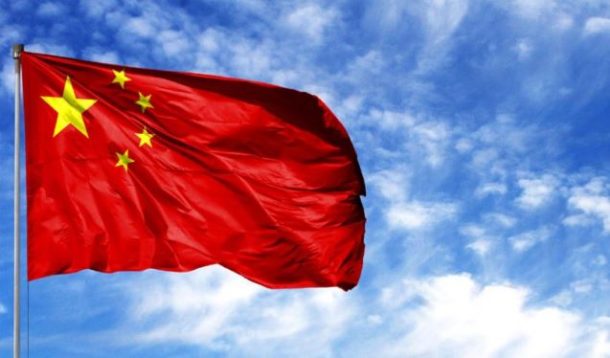WASHINGTON: Even as their nation emerges from three years of COVID-related lockdowns, many Chinese are facing a new source of economic hardship – steep cuts in earnings for the country’s millions of civil servants.
“My year-end bonus will be reduced by at least 20,000-30,000 Yuan [roughly $2,800-$4,200],” said a 38-year-old local housing authority employee in the eastern city of Nantong, who asked to be identified only as Chen for fear of retaliation by authorities.
Like everyone in China, Chen and his wife and two sons had a difficult time during the past few years. Strict COVID pandemic control made his family live an almost hermit life — limited social activities, no vacation, even visiting relatives became rare.
The harsh pandemic controls were finally lifted late last year, but now Chen must cope with a significant loss of income attributed to the slower-than-expected recovery of the Chinese economy.
The nearby city of Suzhou, known for its economic development and prosperity, is slashing its year-end bonuses even more steeply, according to Chen.
“Public servants in Suzhou will probably lose 50,000-60,000 Yuan [roughly $7,000-$8,500] of bonus [money],” he said.
As with many public servants in China, Chen’s official paycheck, providing him with the equivalent of about $1,000 a month, represents only part of his income. He and others are compensated in many other “hidden” ways including bonuses, special subsidies and cheap meals at work canteens.
Chen is entitled to 15 days of paid leave per year, but throughout his career has received an annual reward of about $2,500 for working instead.
“Now I only get like $1,300 of compensation for not taking leaves,” he said.
He added: “This pay cut, in bonus or in other forms, is a nationwide trend.”
Reports about wage reductions for civil servants began appearing in 2021 as local governments, stressed by a troubled real estate market and colossal debts, saw their problems exacerbated by three years of brutal pandemic controls.
Posts went viral on China’s social media platforms early this month saying, “Guangdong province is cutting 25% off its public servants’ paychecks.” The local government in Guangdong, one of the most prosperous provinces in China, never confirmed or denied the information. However, the postings sparked discussions and complaints online.
Many civil servants shared their experiences of bringing home less cash. A user from Hunan province said on Weibo, China’s biggest social networking site: “My friend, a government worker in Hunan, lost a quarter of his yearly bonus. Now he only gets paid $600 a month.”
Another public servant in Shijiazhuang, capital of the northern province of Hebei, told VOA Mandarin via text message that her employer is struggling to pay its workers. “We’ve been borrowing money to pay the civil servants for a long while. Now there’s no money to borrow anymore.”
Not everyone is sympathetic, however. “No matter how much pay cut these people get, they still earn more money than we do! Their housing fund is probably as much as my whole salary,” wrote one Weibo user under the pseudonym “surgeon lancet.”
Another user wrote: “Wage cut? That’s a joke. We all know their money all comes from bonuses and subsidies.”
A China-based economist who spoke to VOA on the condition of anonymity for fear of retaliation said the pay cuts reflect wider budget problems facing local governments across China.
“To ease unemployment the government has to hire people, but they’re with limited budget now, so it’s a must to reduce wages,” he told VOA Mandarin. “I give them credit for at least trying to feed more people.”
Frank Xie, a professor at the School of Business Administration at the University of South Carolina in the United States, said that in some localities, civil servant pay has been not only reduced but stopped completely.
“In recent years the tax revenue for many local governments [has] reduced or stalled,” he told VOA Mandarin. “The revenue on land sales also disappeared. The size of the civil servant team is huge and all of them have to be fed. This is a rampant, sober, dire situation.”
While local governments struggle, the central administration in Beijing has been busily pushing out new programs to try to stimulate economic growth, many of them aimed at encouraging private investment.
On July 19, the State Council and the Central Committee of the Chinese Communist Party jointly issued a statement titled, “Opinions on Promoting the Development and Growth of the Private Economy.” The 7,000-word statement listed 31 guidelines aimed at building a more friendly environment for private businesses, which have suffered from years of pandemic restrictions and lackluster foreign sales.
On July 24, the National Development and Reform Commission, China’s macroeconomic policymaker, followed up with a “Circular on Further Efforts to Promote Private Investment in an Effort to Mobilize Private Investments.” This document pledged to make the private economy “bigger, better and stronger” and to cultivate a “close and clean” relationship between businesses and the government.
After decades of rapid growth, private investment in China has leveled out in recent years, recording an increase of just 0.9% in 2022 and a decline of 0.2% in the first half of 2023, according to the Chinese news website, Caixin. The private sector accounted for 54.2% of all investment in China last year.
“China’s sagging economy has forced authorities to come back to the private sector for help,” said Xie.
“Private businesses outstrip state-owned enterprises in terms of tax revenue, number of jobs, and contribution to foreign trade. Fifty million private enterprises are now not investing, and this is causing a very big problem for tax revenue,” he said.__VOA News





